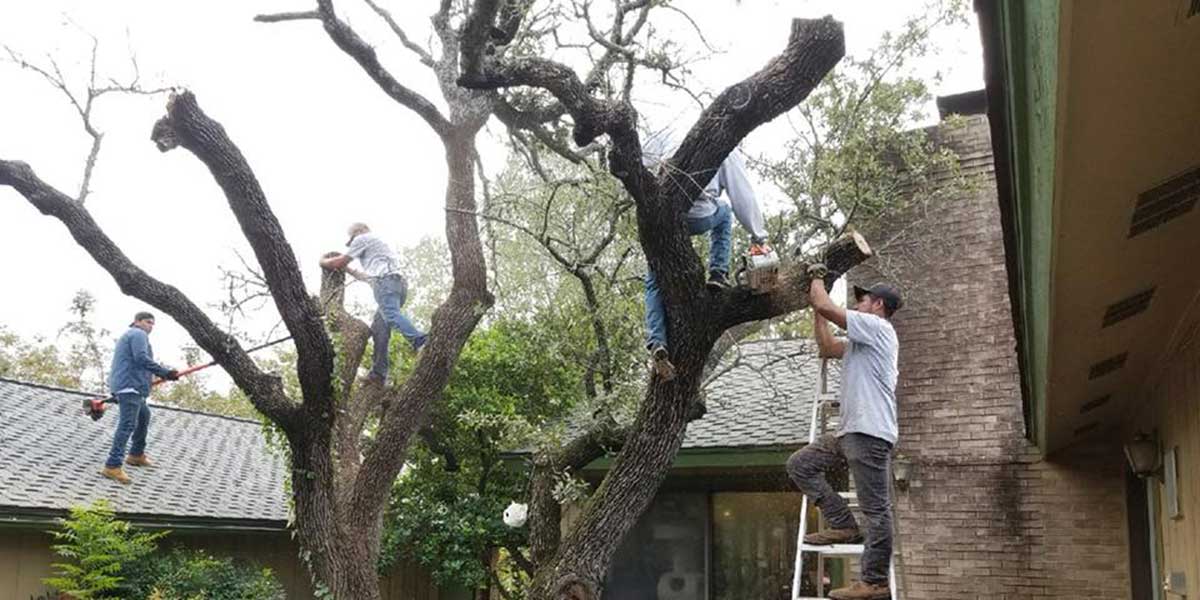Understanding the difference between a dead tree and one that’s simply hibernating during winter isn’t always easy but can be vital for protecting your property’s safety. Below, our team from Wild Oak Tree Service, your trusted tree service in Killeen, TX, explains how to tell if a tree is dying.

Warning Signals To Look For in a Dying Tree
If you notice any of the following seven key warning signs, it’s time to call your local arborists to restore the plant or remove the hazard from your yard.
1. Shedding Bark or Branches
Bark peeling and branch shedding indicate severe decay. When trees exhibit this symptom, it’s because they don’t have enough nutrients to keep these essential components intact. Branch dieback poses immediate safety concerns for your property, as larger limbs may break off the next time a storm or windy day comes around.
2. New or Severe Leaning
If you notice your plant leaning in a new direction or at a more severe angle, you need to schedule emergency services. This typically means that the roots have uplifted. You must act fast before it topples over and injures someone or damages your property.
3. Trunk Holes
Open wounds in a trunk occur from pests, root rot, lightning strikes, improper pruning, and more. A hollow trunk invites pests and disease inside, leading to root decay, fungal growth, and long-term problems for the plant. These holes also inhibit nutrient delivery, preventing growth and recovery.
4. Lack of Foliage
If you’re wondering how to tell if a tree is dying, check the canopy. Missing or discolored leaves signify root damage. When the roots are compromised, the trunk cannot properly send nutrients to the canopy, leading to leaf discoloration and poor growth up top.
Sometimes, pests are the culprits. In either case, the damage is often irreversible.
5. Excessive Pests
Termites and beetles can wreak havoc on the internal structural components of trunks. Pest infestations often manifest in weak trees where the insects burrow inside, causing severe damage. Depending on your plant’s current state, you may be able to save it, but you must act fast.
6. Damaged Roots
Trees depend on roots for nutrient delivery and structural stability. When roots become damaged from construction, lawn mowers, improper pruning, erosion, or other causes, the entire plant can suffer the consequences. If you notice damage to the roots, you’ll likely begin to discover worsening issues with the trunk and branches in the coming weeks, so you should contact an arborist as soon as possible.
7. Brittle, Dry Branches
When the tree’s branches snap off easily without any give, the plant is dying. Branches should be flexible with green interiors rather than brittle and brown on the inside. You could check for this issue by breaking off the ends of a few small twigs to see how easily they snap.
Is Your Tree Dead? Give Us a Call
Now you know how to tell if a tree is dying. If you notice these signs, contact us at Wild Oak Tree Service to schedule services with our certified arborists.
